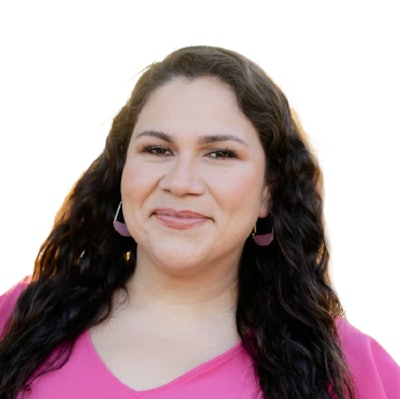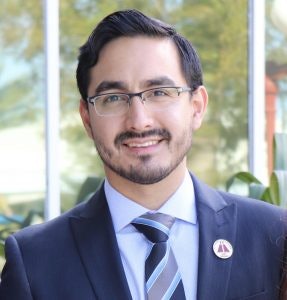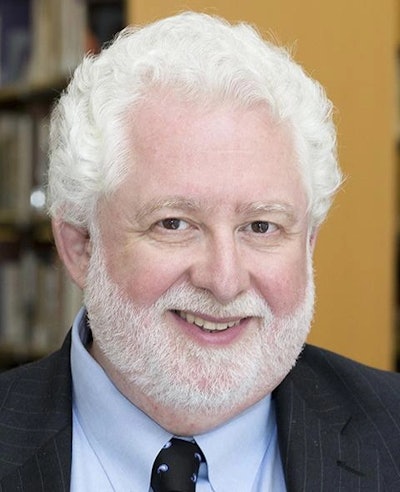 Gaby Pacheco
Gaby Pacheco
The term Dreamers refers to undocumented individuals brought to the U.S. as children. Goncalves has been in the U.S. since 2012. News reports have indicated that she was targeted by ICE after information about the traffic stop was sent by the deputy to a communication group related to drug enforcement. He was unaware the information would be used in other ways.
 Diego N. Sánchez
Diego N. Sánchez
“What we’re seeing is the casting of a wide net by the administration with no regard to not just due process but also discretion on individuals and people who shouldn’t be party for deportation and for cases like our scholar Caroline,” said Gaby Pacheco, president and CEO of TheDream.US, the nation’s largest college and career success program for undocumented immigrant students with students in over 40 states. Goncalves is a TheDream.US scholar.
Pacheco noted that Goncalves is in an active immigration process — news reports indicate the family has a pending asylum application — and she has work authorization and a valid driver’s license. Goncalves recently applied to have her scholarship renewed for the next school year.
For higher education, the Presidents’ Alliance on Higher Education and Immigration and the Higher Ed Immigration Portal have extensive information on immigration matters.
 Dr. Philip Kasinitz
Dr. Philip Kasinitz
These plans can include working with pro bono attorneys, people who can quickly take action. Having a strong network is critical, and institutions can work together to fully inform students of their rights. Colleges and universities can also work with students if a situation arises that causes an interruption in studies mid-semester, such as having classes marked as incomplete rather than dropped out.
“So that they have a chance that when this is resolved they can finish their education,” said Pacheco, who advises colleges and universities to conduct assessments to see where they can step up to ensure that students can persist and complete. “Also, the ability to switch courses to hybrid mode if they can’t come to campus.”
Some Dreamers have Deferred Action for Childhood Arrivals (DACA) status, which offers them protections, but attorney Diego N. Sánchez, director of policy and strategy at the Presidents’ Alliance, said DACA currently protects about 500,000 individuals but there are an estimated 2 million Dreamers living in the U.S. today. There are about 500,000 undocumented students currently enrolled in higher education, only about 28% of whom have DACA status. That means 72% of undocumented college students are pursuing their educations without work permits, access to federal financial aid or protection from deportation.
“We tell colleges and universities to protect the student data and avoid collecting immigration status unless it’s absolutely necessary,” said Sánchez, who noted that the Presidents’ Alliance is estimating that 100,000 undocumented students are graduating from high school this year. “The reality is the Dreamers are being swept up in this broad net.”
Dr. Philip Kasinitz, presidential professor of international migration studies, Africana Studies and sociology at the City University of New York (CUNY) Graduate Center, said among faculty and staff, including the international students office and student affairs, there is a sense of uncertainty and caution for students, but no clear idea of what is happening.
Separate from issues pertaining to Dreamers are the issues of international students, many of whom have the non-immigrant F-1 Visa.
“I think there’s a lot of nervousness and apprehension, particularly about F-1 international students simply because the cancelling of visas, as far we can tell, so far has seemed extremely arbitrary,” said Kasinitz. “I have a number of F-1 students who this summer have wanted to go home and visit family. Some of them have, some of them haven’t. Theoretically, they all still have their F-1 Visas. Will they be cancelled when they’re out of the country? They don’t know. In some cases, will they be barred from readmission? We don’t know.”
Sánchez noted the current travel ban and anticipated additional travel bans could impact international students with F-1 Visas. There is an atmosphere of fear and uncertainty.
“There are enough rumors that are true to make everyone really nervous,” Kasinitz said. “What that does is it leads to a kind of caution and self-censorship because we haven’t discerned who is potentially in danger and who is not. So, it tends to make everyone act like everyone is in danger. If you think about it, that’s a much more efficient way of getting compliance than actually going after everybody, which they don’t have the capacity to do.”















